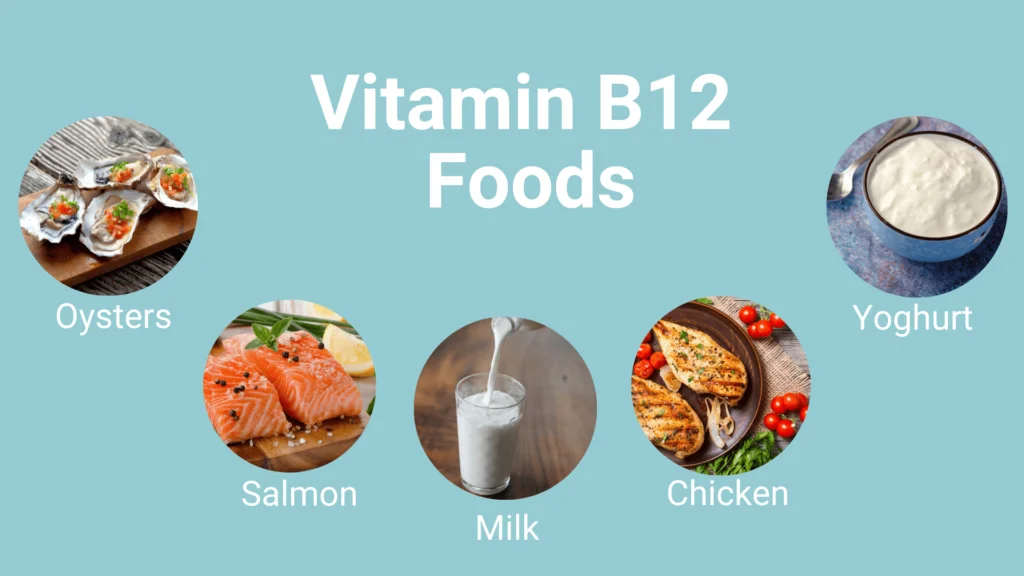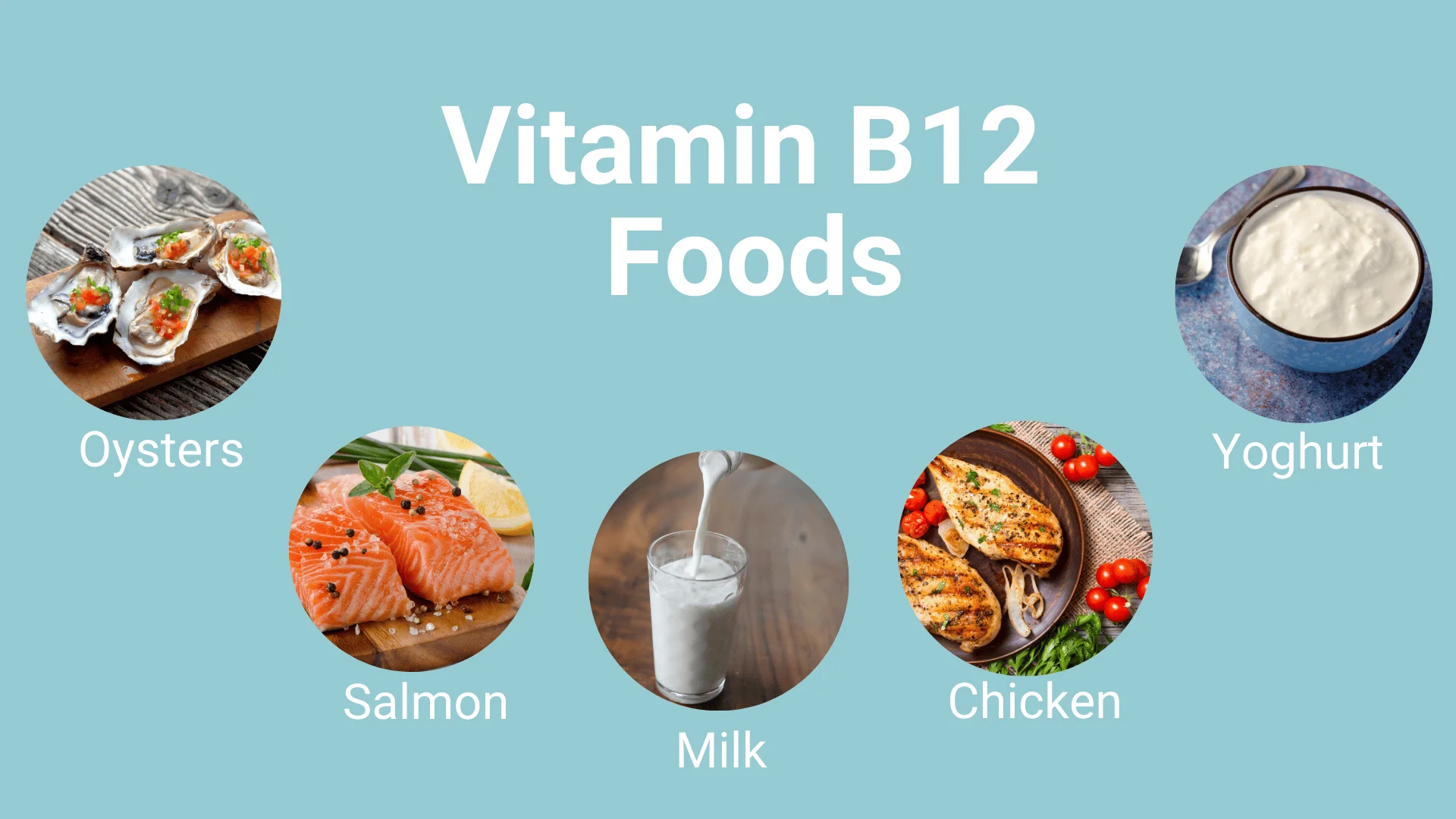
The Importance of Vitamin B12 in Our Human Body: A Vital Nutrient for Optimal Health
Introduction
Importance of Vitamin B12 in Our Human Body, Vitamin B12 which is also known as cobalamin, is a vital vitamin that plays an essential role in the functioning of many organs. It is part of the B-vitamin complex and is a crucial ingredient in maintaining health overall in particular in relation to the production of energy as well as brain function. the development of red blood cells. Although it might appear to be an additional vitamin within the alphabet Vitamin B12 is distinguished by its vital contribution to human biology. In this post we’ll explore the significance of vitamin B12 as well as the negative effects of deficiency, as well as how to make sure you’re getting sufficient amounts B12 in your daily diet.
What is Vitamin B12?
Vitamin B12 is a water-soluble vitamin is required by your body for many vital functions, including DNA synthesis and care of your healthy nerve cells. In contrast to the fat-soluble vitamins (like vitamin D, D, E, and K) and water-soluble vitamins such as B12 aren’t stored in huge amounts within the body. This means that we require regularly consumed intake of B12 via supplements or food to ensure optimal health.
Vitamin B12 is naturally found in animal-based food items like meat, dairy as well as eggs, fish and eggs. For vegans, vegetarians, and people with medical conditions, taking supplements with B12 could be beneficial.
Why is Vitamin B12 Important?
Vitamin B12 is vital in many bodily functions and deficiency in it can cause a myriad of health problems. Here are a few of the main functions it performs within the human body:
1.Energy Production
Vitamin B12 is a key factor in the energy metabolism. It aids in converting sugars to glucose. This functions as the major source of energy to the human body. If you’re not getting enough B12, you could be afflicted with fatigue, weakness and general lack of energy. This is due to the fact that the body’s struggle to transform food into energy usable.
2.Red Blood Cell Formation
Vitamin B12 is vital to produce health red blood cells. The red blood cells play a role in carrying oxygen through the entire body. If B12 levels are not sufficient red blood cells, they can get bigger than normal and may have trouble moving out of bone marrow. This condition, also known as megaloblastic aemia, can result in symptoms such as fatigue, dizziness, or shortness of breath.
3.Nervous System Health
One of the main benefits that vitamin B12 is maintaining the well-being of the nervous system. It aids in the creation of myelin, which is a protection layer that protects nerve fibers and facilitates the swift communication of nerve impulses. Deficiency in vitamin B12 could cause neurological issues, including the sensation of tingling or numbness, difficulties walking, or even cognitive impairments like memory loss, or confusion.
4.DNA Synthesis
Vitamin B12 plays a significant part in DNA synthesis which is vital for cell division and growth. This is especially important in times of high cell growth, like growing periods or pregnancy in children.
5. Heart Health
Vitamin B12 together in conjunction with folate, and vitamins B6 can help lower levels of homocysteine. It is an amino acid that, if found in large amounts can increase the risk of developing heart disease. By maintaining homocysteine levels within a certain range, B12 contributes to cardiovascular health and could reduce the chance of heart attacks and strokes.
6. Mental Health
The low levels of vitamin B12 are linked to mood disorders such as anxiety and depression. Vitamin B12 aids with the creation of serotonin which is a neurotransmitter that is responsible for the regulation of mood. Research has shown that those who are deficient in B12 are more susceptible to depression-related symptoms. Making sure that they have an adequate B12 intake can boost mood and improve mental wellbeing.
Causes and Symptoms of Vitamin B12 Deficiency
Vitamin B12 deficiency can be due to a variety of factors that include poor nutrition and medical conditions as well as malabsorption problems. The people who are more at risk of being deficient include vegans, vegetarians, elderly adults, as well as those suffering from digestive issues like Crohn’s disease and celiac disease.
Symptoms of Deficiency:
– Insufficiency or fatigue
– Breathing shortness
There is a tingling or feeling of numbness in the feet and hands
– It is difficult to walk or maintain equilibrium
– Cognitive problems such as confusion or memory loss
Mood problems, for example anxiety or depression
Megaloblastic anemia
The condition is called glossitis (inflammation in the tongue)
If not treated If left untreated, the vitamin B12 deficiency could cause irreparable nerve damage, and cause more severe health problems. The early detection and treatment are vital.
How to Ensure Adequate Vitamin B12 Intake
1.Dietary Sources
Vitamin B12 can be found naturally in a wide range of animal-based meals. Here are a few of the top sources for dietary intake:
Fish: Salmon tuna, and trout are fantastic sources of B12.
Meat: Beef, chicken’s liver, and a pig offer high levels of B12.
Dairy: Milk yogurt and cheese are excellent sources for people who eat dairy.
Egg yolks are a rich source of vitamin B12. volume of vitamin B12.
2.Fortified Foods
For vegans and vegetarians, obtaining sufficient vitamin B12 isn’t easy since the majority of natural sources are derived from animals. However, many plant-based meals are enriched with B12 such as:
– Breakfast cereals
– Milks made from plants (such as soy, almond as well as rice milk)
– Nutritional yeast
3.Supplements
If you struggle to obtain sufficient B12 in their diet’s supplementation is generally advised. B12 supplements are available in a variety of types, such as capsules, tablets and even Sublingual (under the tongue) varieties. People with issues with absorption may be required to take B12 injections or high dose oral supplements that are prescribed by a physician.
4.Multivitamins
A lot of multivitamins contain B12 which makes it simple to satisfy your daily needs. It is important to select a quality multivitamin with a sufficient amount of B12.
Recommended Daily Intake
The daily recommended dose of vitamin B12 is dependent on life stage and age:
Adults 2.4 micrograms
Pregnant women: 2.6 micrograms
Breastfeeding women: 2.8 micrograms
For people who are older those who are older, the ability to absorb B12 from food diminishes as they the advancing years. So, supplements or foods fortified with B12 could be more effective in maintaining the proper levels.
Conclusion
Vitamin B12 is a crucial nutritional element that helps maintain energy levels and brain function and red blood cell production and overall health. Getting enough B12 through supplements or food is vital for optimal health, specifically for those susceptible to deficiency. It is whether you receive it from your diet or supplements B12 should never be neglected because it plays an essential function in maintaining your body and mind functioning at their highest.
